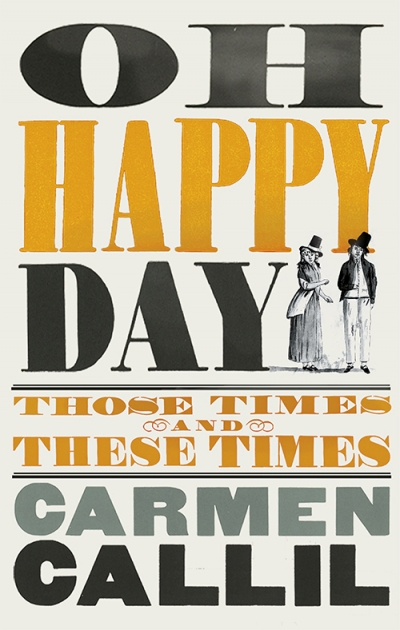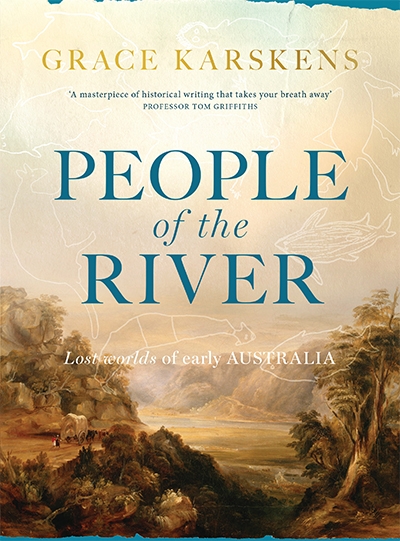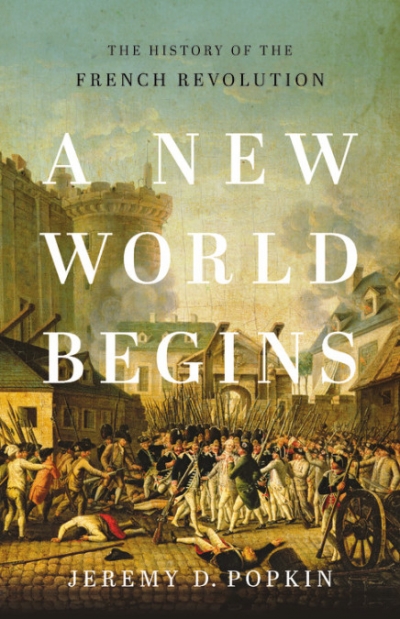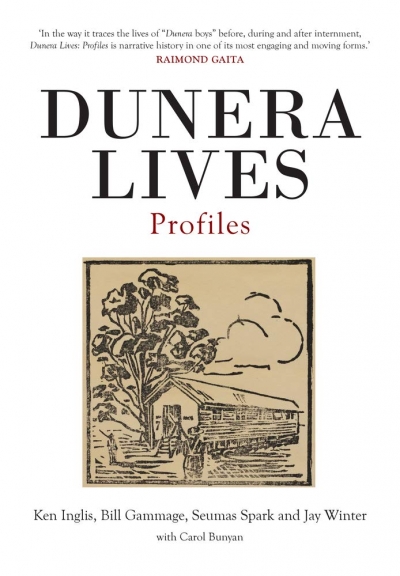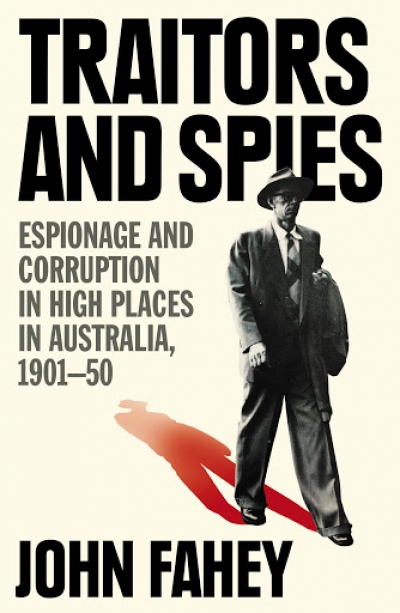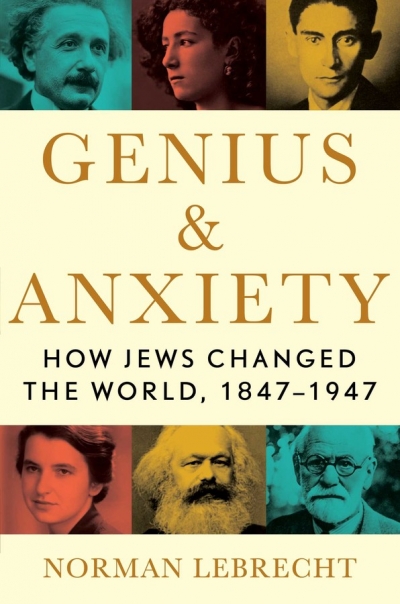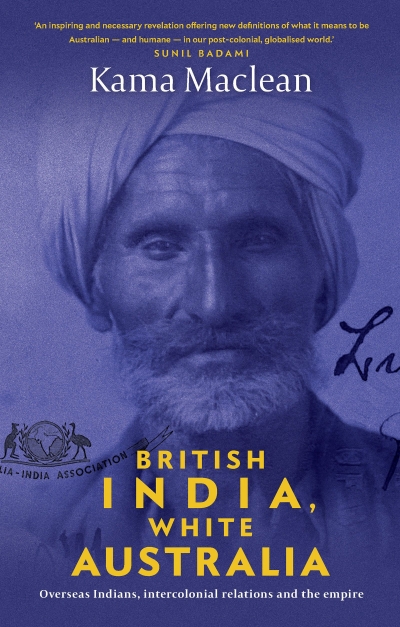History
Scanning my bookshelves, I see a dozen or more of the distinctive green spines of Virago Press. In the late 1970s and 1980s, the Virago imprint was a guarantee of good reading by women writers whose works were rediscovered and sent out to find a new public. I had read Margaret Atwood, Rosamond Lehmann, and Elizabeth Taylor for the first time in hardcovers; Virago made them new. Kate O’ Brien’s The Land of Spices, banned in Ireland, had been hard to get. Here it was in Virago green, with a perceptive introduction to put it in context.
... (read more)People of the River: Lost worlds of early Australia by Grace Karskens
Grace Karskens’s previous book, The Colony (2009), which dealt with Sydney and the Cumberland Plain during the first years of invasion, was one of the great books about the early colonial period in Australia. People of the River is just as important but more profound and risky. In both, Karskens has found ways, brilliantly original ways, of taking in entire populations, and she is particularly good with webs of human connection and patterns of movement. Her focus on multi-centred relationship belongs to the twenty-first century, an age which is beginning to rethink the human individual as an interlinked being, a creature shaped by circumstance and by connection.
... (read more)Burning the Books: A history of knowledge under attack by Richard Ovenden
The store of knowledge available to humanity has never been so immense and accessible as it is today. Nor has it been so vulnerable to neglect or erasure. That, in essence, is the message of this book, written with urgency by the most senior executive at the Bodleian Libraries at Oxford, one of the largest and oldest library systems in the world.
... (read more)A New World Begins: The history of the French Revolution by Jeremy D. Popkin
Jeremy D. Popkin, a historian at the University of Kentucky, fittingly begins his account of the French Revolution with a printer in Lexington enthusing in late 1793 about the ideals of the Revolution of 1789 in his Kentucky Almanac. The printer’s geographic distance from the events in Paris meant that his idealistic vision of the Revolution coincided with its most violent and repressive period in 1793–94, later dubbed ‘the Reign of Terror’. This juxtaposition of 1789 and 1793 is useful for Popkin to make his key point that, ‘despite its shortcomings, however, the French Revolution remains a vital part of the heritage of democracy’.
... (read more)Many have come to Australia in strange circumstances, but the two thousand or so who arrived on the Dunera and Queen Mary in 1940 have one of the most unusual stories. With the outbreak of World War II in September 1939, Germans and Austrians living in the United Kingdom became enemy aliens. In May 1940, with the British Army on the Continent facing destruction and with invasion a very real threat, Winston Churchill ordered every enemy alien in the country arrested and detained. It was, he later realised, a mistake, as most Germans living in the United Kingdom were Hitler’s enemies rather than his supporters, and many were actually refugees from Nazism. But some had already been sent out of the country on ships bound for Australia and Canada. Not since the last convicts had been dropped at Fremantle in 1868 had the British government banished people judged as undesirable to Australia.
... (read more)Traitors and Spies: Espionage and corruption in high places in Australia, 1901–50 by John Fahey
I am a great fan of archives, and so is John Fahey, a former officer of an Australian intelligence service (the Defence Signals Directorate) turned historian. His previous book, Australia’s First Spies (2018), covered the same time period (1901–50) but focused on the good guys (our spies) rather than the bad ones (their spies). His itemised list of Australian, British, and US archival files consulted runs to several pages. Most of these are the archives of intelligence agencies. And here’s the rub: intelligence files contain many names, but not necessarily the names of actual spies.
... (read more)A Place for Everything: The curious history of alphabetical order by Judith Flanders
In the early nineteenth century, Sequoyah, a Cherokee man living in Alabama, developed a fundamentally new system of writing Cherokee, which had until then not been a written language. Sequoyah’s system – properly a syllabary rather than an alphabet, in that it represents the eighty-five syllables used in Cherokee – is fascinating, innovative, and remains in use today. But in what order did those fabulous syllables go? Sequoyah provided a chart, but the missionary Samuel Worcester quickly rearranged it to suit English alphabetic order. Language was power, and ‘alphabetic order’ proved not to be neutral.
... (read more)Genius and Anxiety: How Jews changed the world, 1847–1947 by Norman Lebrecht
My first encounter with Daniel Deronda (1876) was during a university undergraduate course in Victorian literature. The novel was almost shocking for its romanticised Jewish eponymous hero and its deep evocation of Judaism and modern Zionism’s stirrings. This was a singular experience when it came to reading Jewish characters by writers who were not themselves Jewish. Fictional Jews of this period were more likely to be permutations of vile stereotypes, Shylock or Fagin-like. They induced a feeling of shame, even when arguments could be made for the work’s nuance and literary brilliance. In Genius and Anxiety: How Jews changed the world, 1847–1947, we meet Daniel Deronda’s unlikely muse along with a profusion of other personalities, some famous, others whose legacies have been unnoticed or suppressed.
... (read more)The Colonial Kangaroo Hunt by Ken Gelder and Rachael Weaver
As generations of Australian tourists have found, the kangaroo is a far more recognisable symbol of nationality than our generic colonial flag. Both emblematic and problematic, this group of animals has long occupied a significant and ambiguous space in the Australian psyche. Small wonder, then, that Ken Gelder and Rachael Weaver have found such rich material through which to explore our colonial history in The Colonial Kangaroo Hunt.
... (read more)British India, White Australia: Overseas Indians, intercolonial relations and the Empire by Kama Maclean
Australian Sikhs delivering free meals to fellow citizens in need has been a heart-warming news story against a backdrop of doom and gloom this year as bushfires then the coronavirus laid waste to life as we know it. Public housing tenants in lockdown, international students stranded without support, and bush-dwellers who lost everything in the fires are among those who benefited from their kindness and competence.
... (read more)

